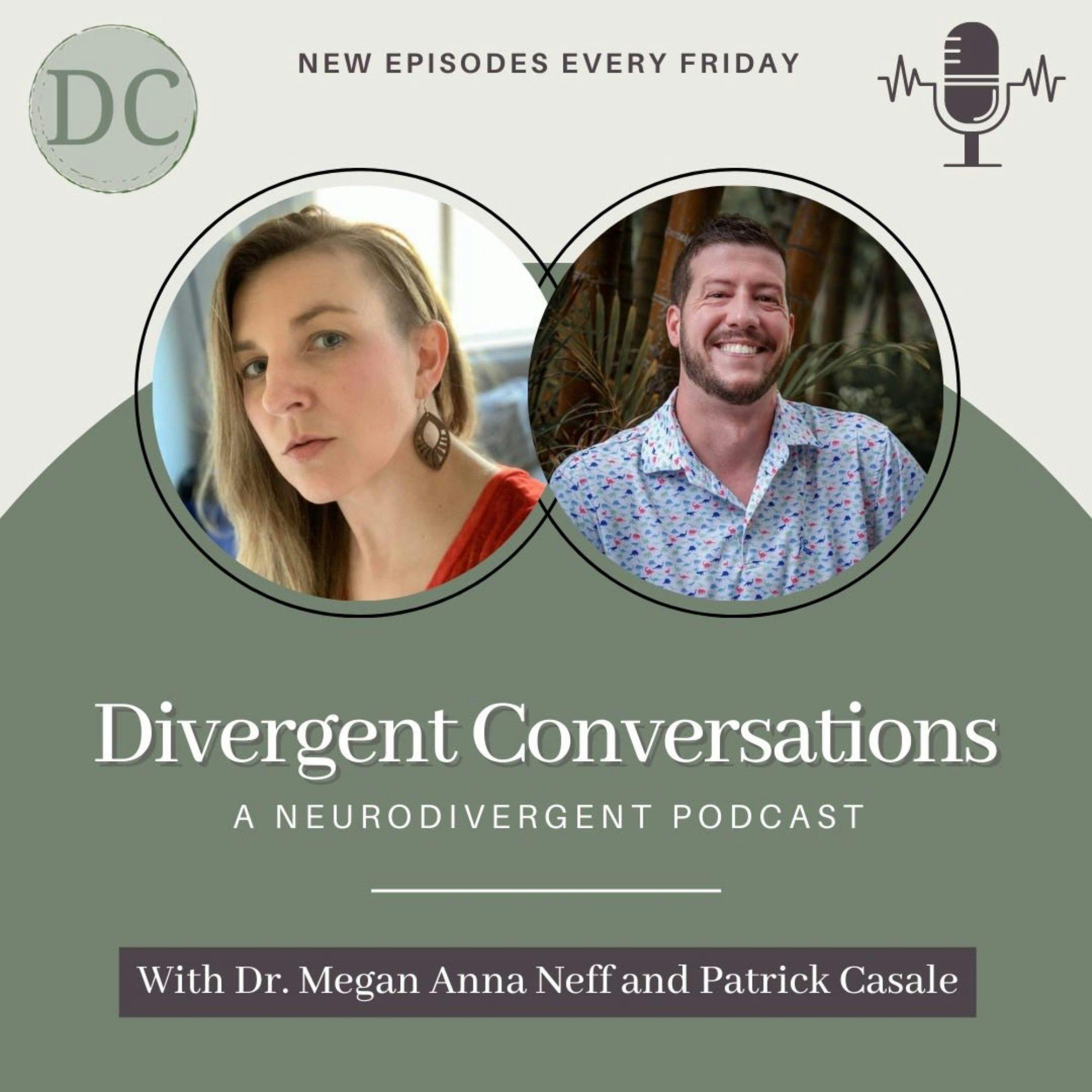Episode 26: Exploring Different Neurotypes: Ask an Autistic [featuring Amanda Diekman]
Description
Do you wonder how life might differ between an Autistic individual without ADHD and an Autistic individual with ADHD?
In this episode, Patrick Casale and Dr. Megan Anna Neff, two AuDHD mental health professionals, talk with Amanda Diekman, mother of three neurodivergent children, and an author and coach in the neurodivergent-affirming parenting world, about her experiences as an Autistic individual without ADHD.
Top 3 reasons to listen to the entire episode:
Understand some of the struggles, grief, and loss surrounding switching between a masked and unmasked self.
Identify some of the ways that autism without ADHD can present differently from other neurotypes, including sensory issues, special interests, demand avoidance, and life tasks.
Get a glimpse into the world of parenting for neurodivergent moms.
There are many nuances surrounding the experiences of Autistic individuals since autism is a disability you can’t necessarily see. We want to give this disclaimer that this episode only highlights the experience of one Autistic person, but it still gives a glimpse into the unique ways that various neurotypes experience the world.
More about Amanda:
Amanda Diekman's mission is to lead weary parents into the joy and ease of the low-demand life. She's an ordained pastor and parent coach, a late diagnosed autistic adult, and a mom of three neurodivergent children. Since recovery from her own burnout and PTSD, Amanda has been spreading the message of low-demand parenting — dropping demands and aligning expectations to meet children with radical acceptance. She lives in the North Street Community, an intentional community of all abilities in downtown Durham.
Amanda's Website: www.amandadiekman.com
Amanda’s Book: Low Demand Parenting
Parenting Summit: Low Demand Parenting Summit
Mastermind: Amanda’s Mastermind Program
A Thanks to Our Sponsors, Tula Consulting & Marisa La Piana LCSW Psychotherapy!
✨ Tula Consulting:
We would love to thank Tula Consulting for sponsoring this episode.
Workplace communication can be messy. Considering the lens of neurodiversity can be helpful for understanding this. Maybe you found yourself frustratedly typing "per my last email" in an office communication, perplexed about how a colleague or client doesn't seem to understand your very clearly written email.
Consider this. Visual information processing isn't everyone's strength. Perhaps a quick call could make a world of difference. Or how about including a video or voice message with your email? And this technology exists! Simple steps like these can make your work environment more accessible and bring out the best in everyone.
Tula Consulting is on a mission to help organizations build more neuro-inclusive products and work environments. Tula does this by bringing curious minds to solve curious problems. Find out more by visiting tulaneurodiversity.org.
✨ Marisa La Piana LCSW Psychotherapy:
We would love to thank Marisa La Piana Psychotherapy for sponsoring this episode.
Marisa (she/they) is a neuroqueer licensed clinical social worker and trauma therapist. They bring a queer and neurodivergent-affirming, anti-ableist lens to their practice.
She is passionate about utilizing attachment-focused EMDR work, parts work, and body-based somatic work to support folks with trauma healing. They are also deeply influenced and inspired by the inherent strengths, resilience, and wisdom of queer, disabled, and neurodivergent communities. Marisa offers both individual therapy as well as workshops and trainings.
If you reside in the state of California and you're looking for a queer, neurodivergent-affirming therapist, you can schedule a free consultation at marisalapianalcsw.com.
More Episodes
ADHD often brings unique challenges with impulsive behaviors which can make everyday interactions and tasks more complex. In an attempt to better understand the ways ADHD can present in daily life, this episode uses the DSM-5 diagnostic criteria as a framework for discussion—this is not an...
Published 06/14/24
Published 06/14/24
ADHD hyperactive traits are often misunderstood and the DSM-5’s portrayal of this type is heavily geared toward children and adolescents, which can make it harder to understand and address in adulthood. In an attempt to better understand the ways ADHD can present in daily life, this episode uses...
Published 06/07/24


